- TOP
- Search Criteria
- Only Once a Year! See the Red Gates Lit up by Lanterns at Fushimi Inari Taisha in Kyoto
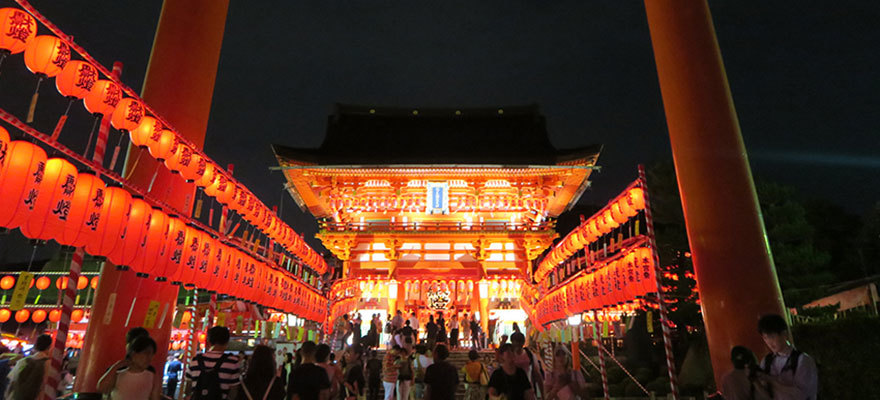
STORY
Only Once a Year! See the Red Gates Lit up by Lanterns at Fushimi Inari Taisha in Kyoto
Summer in Japan is known for the many festivals and firework displays all over the country. This time we'll introduce you to the Yoimiya-sai festival held at Kyoto's Fushimi Inari Taisha shrine.
The Yoimiya-sai is held on the day prior to the motomiya-sai, the main festival where people express their gratitude to the Inari god for its blessings. The highlight of the day is the lantern ritual.
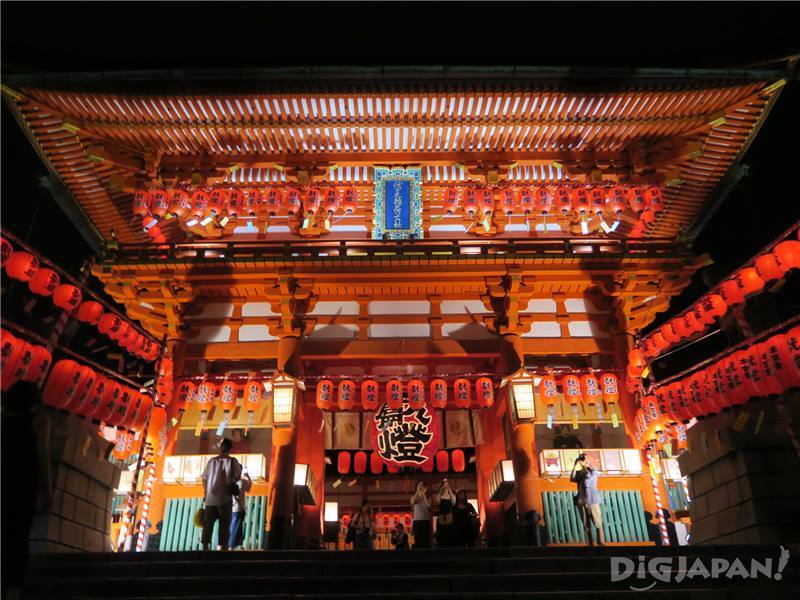
This ritual is held only once a year. The night of the festival many lanterns are lit and the shrine stands out in the red light among the darkness, giving out an aura of elegance.
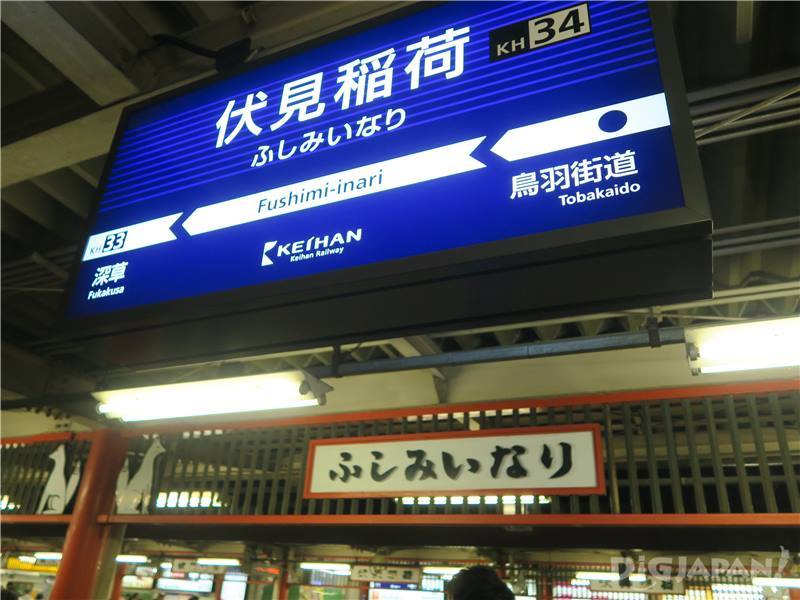
Fushimi-Inari Station is different from other stations on the Keihan line. The platforms are decorated with red pillars inspired by the torii gates of the shrine and the shrine's protectors, the kitsune foxes.
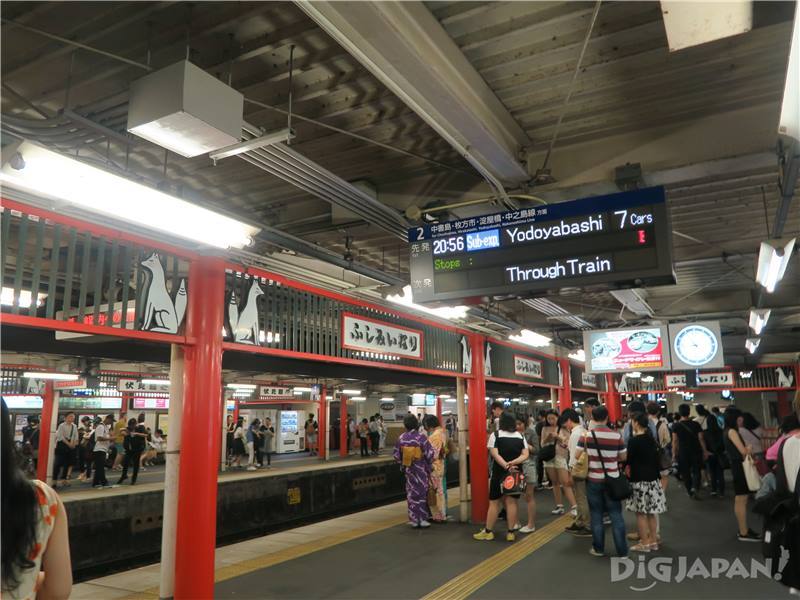
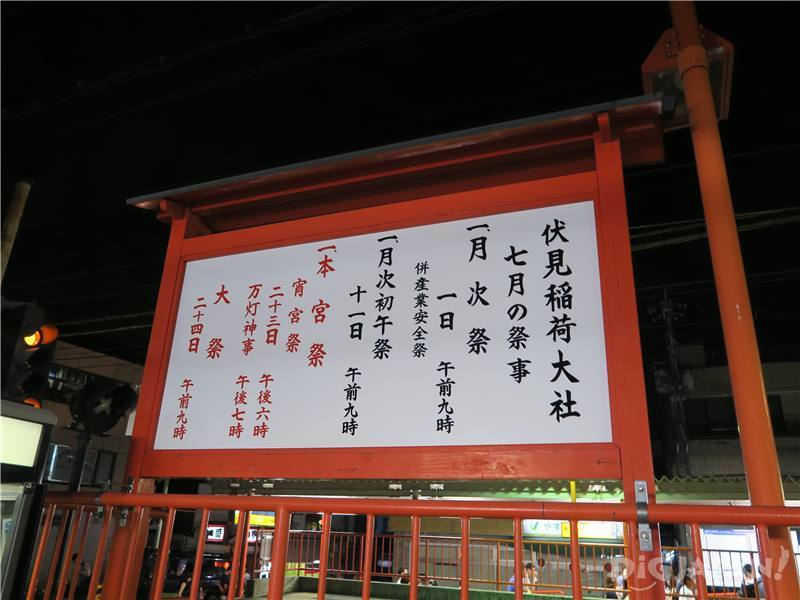
As soon as the sun goes down the lanterns are lit and the road leading to the shrine is lined by countless shining lanterns.
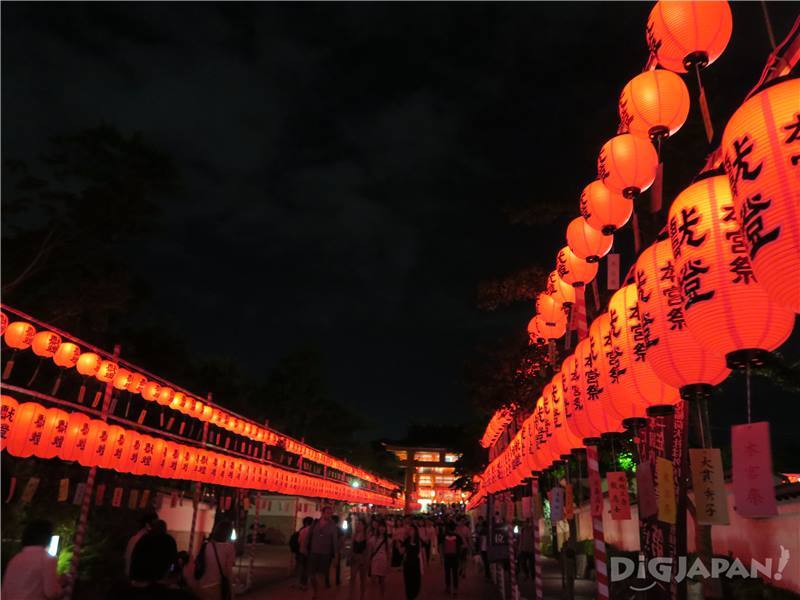
Going past the big torii gate at the entrance makes you feel like you entered a parallel world.
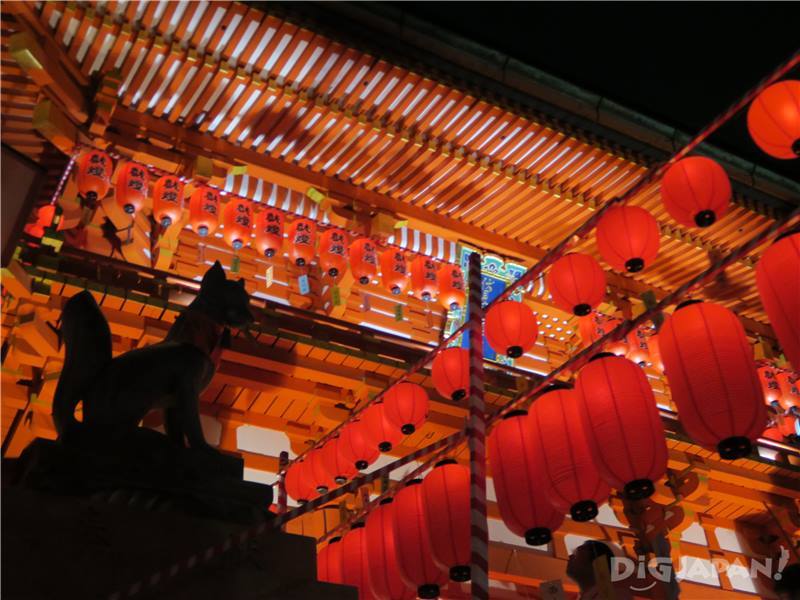
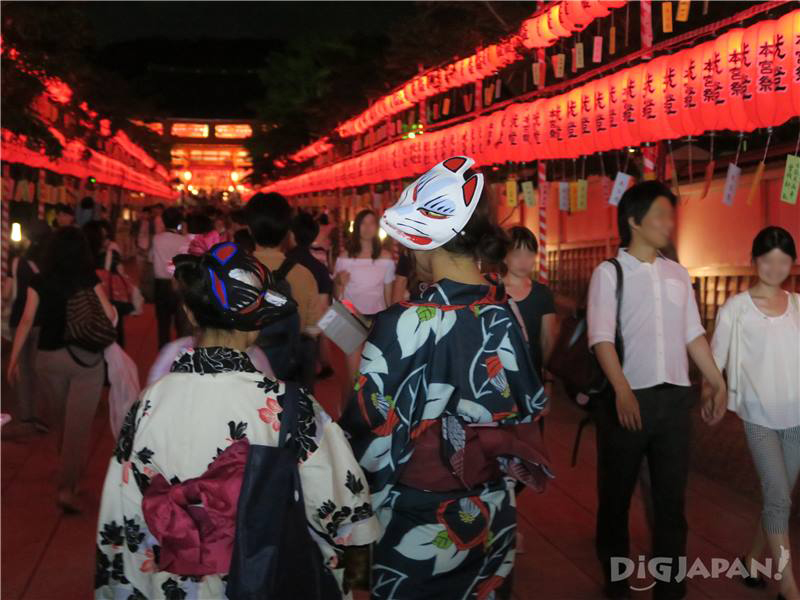
The shrine shows us a different look at night.
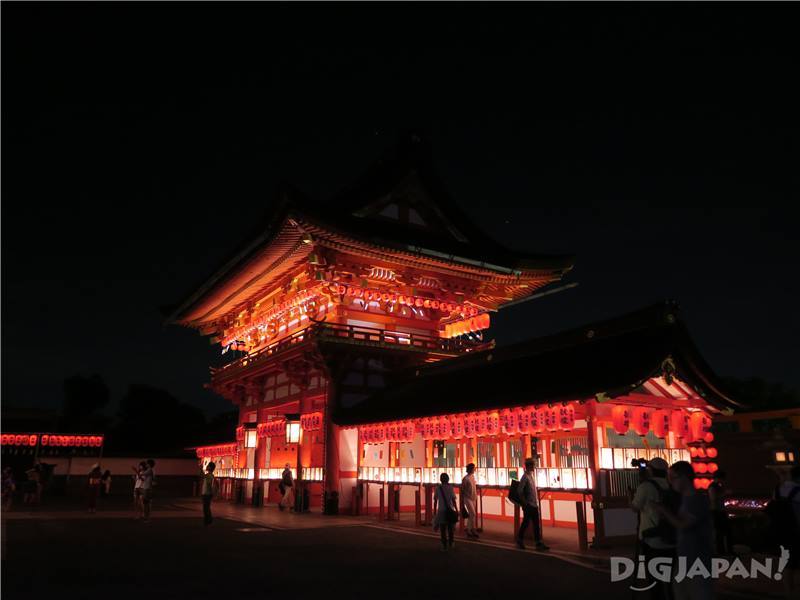
Fushimi Inari Taisha is famous for the senbon torii (千本鳥居), a row of countless red torii gates. Normally if you visit at night you can't see anything in the dark, but during the Yoimiya-sai the gates are lit by red lanterns. It's a very rare and beautiful view.
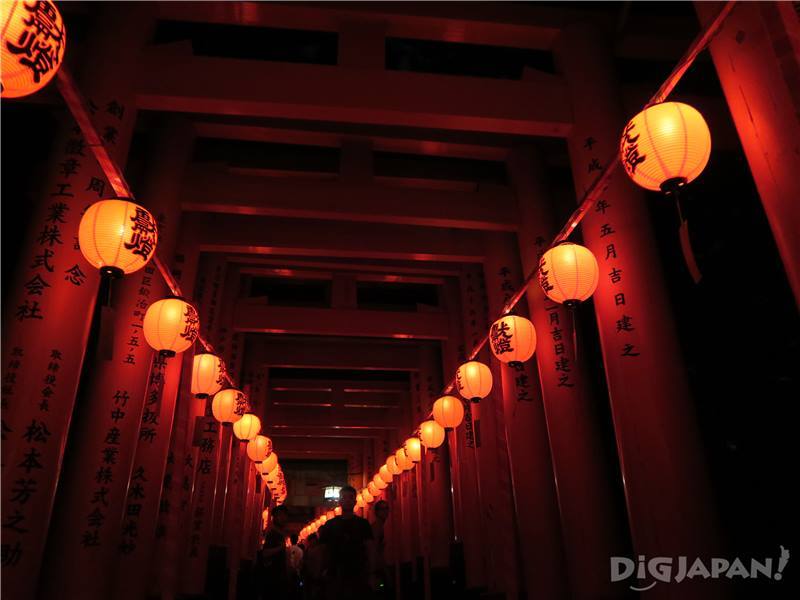
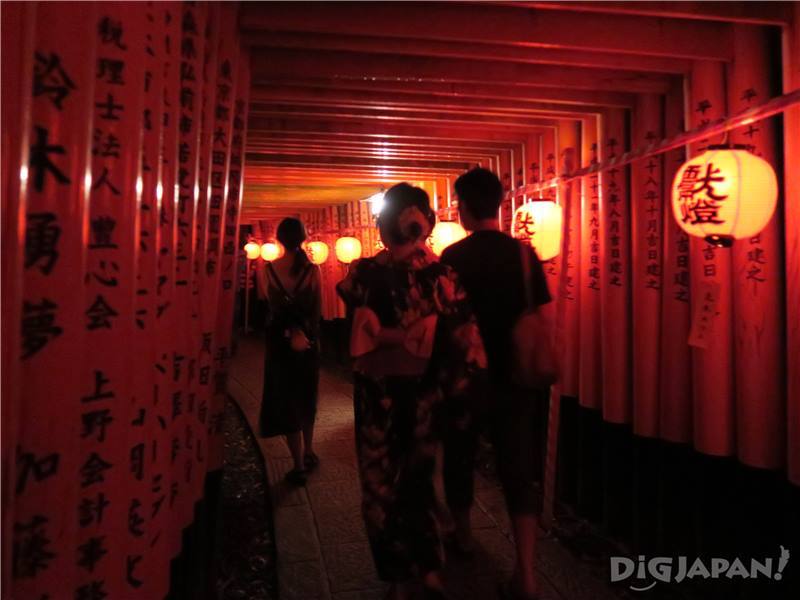
The fox is said to be the animal protector of inari shrines, so you'll find many fox-themed items here. Aside from the masks described earlier, there are also fox-shaped ema plaques. These wooden plaques are used to write one's prayers and wishes. You can write your own prayers too. The Inari god is the god of abundant crops and thriving business.
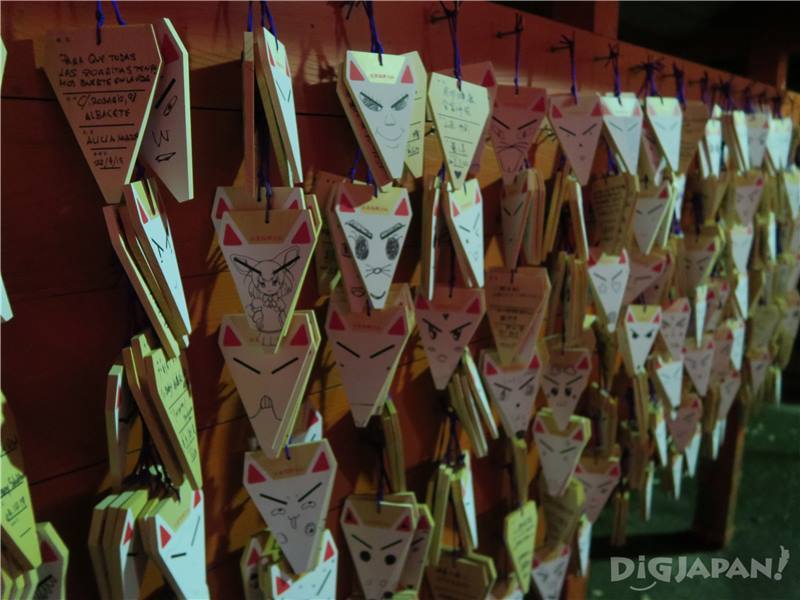
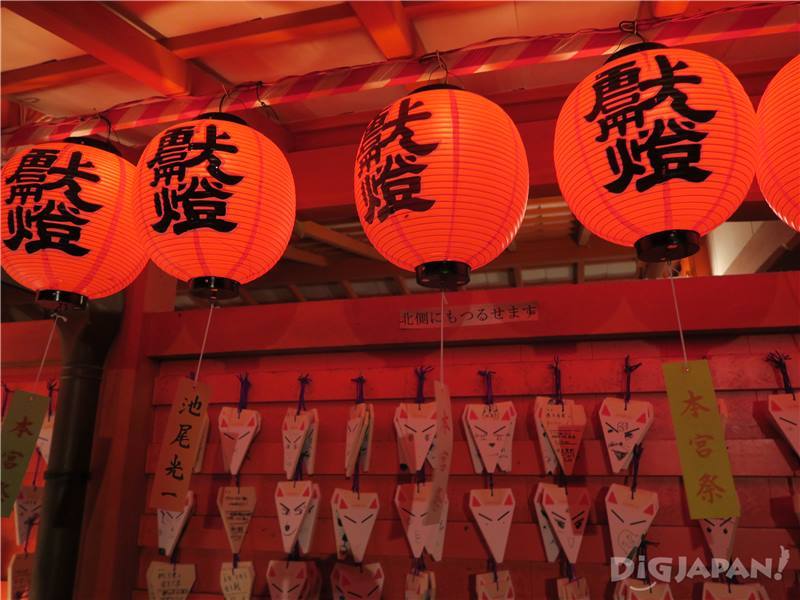
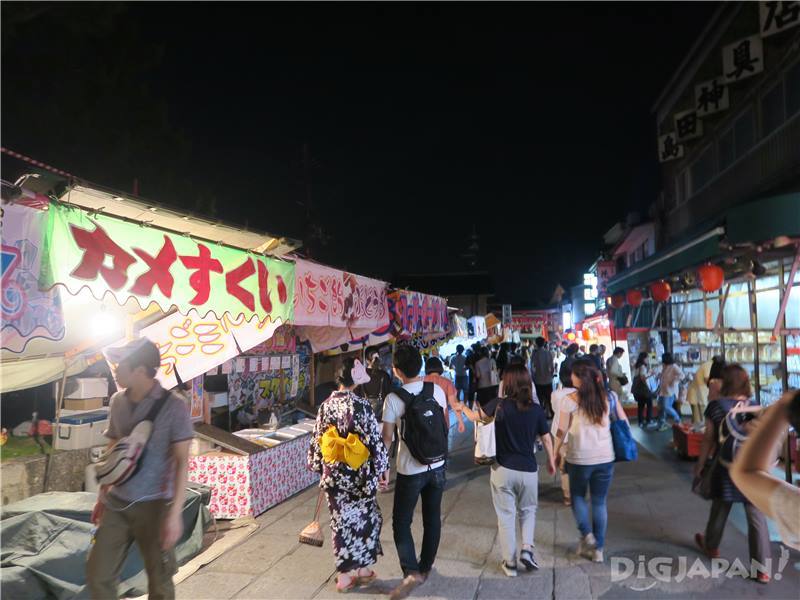
There are also stalls where you can play small games like the kingyo sukui (goldfish catching) and ring throwing. The food stalls sell grilled squid, yakisoba and all kinds of sweet and savory street food. Make sure you come on an empty stomach!
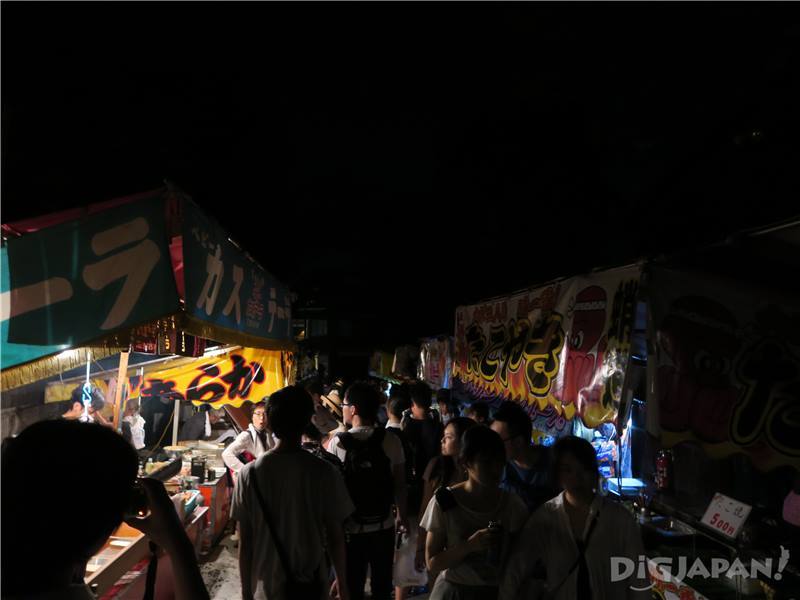
One food in particular that I recommend trying here is inari sushi.
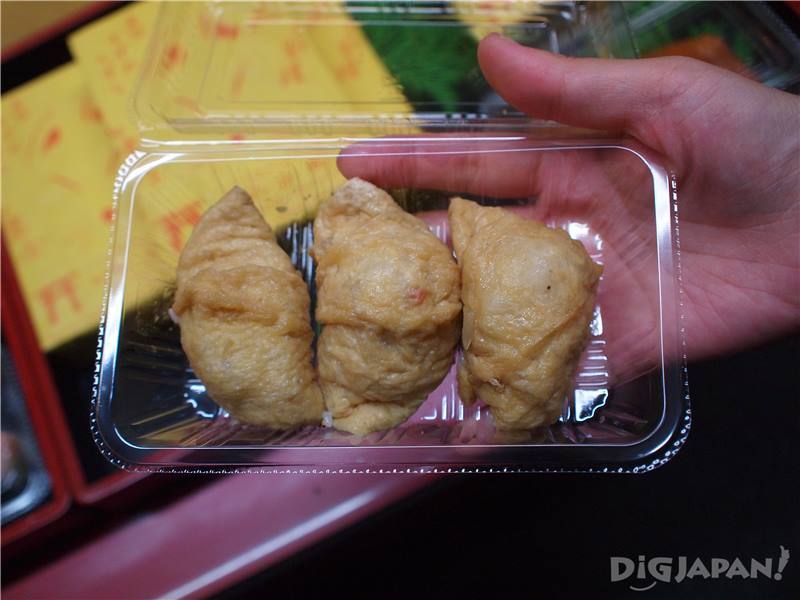
It consists of sushi rice wrapped inside deep-fried tofu pockets called 'inari'. It is said that this is the foxes' favorite food, so there are a lot of shops by the shrine where you can eat inari sushi. Definitely give it a try!
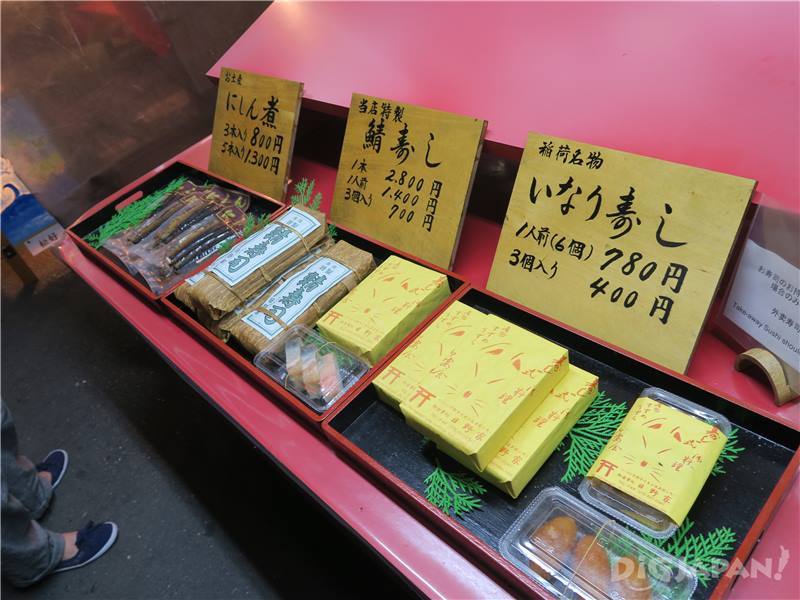
Fushimi Inari Taisha's torii gates are one of the most prominent tourist attractions of Kyoto. The place is crowded with visitors all year round.
However, being able to see the torii at night is a very rare occasion. If you happen to be around for this festival don't miss the chance to see a part of this famous shrine that very few people get to see.
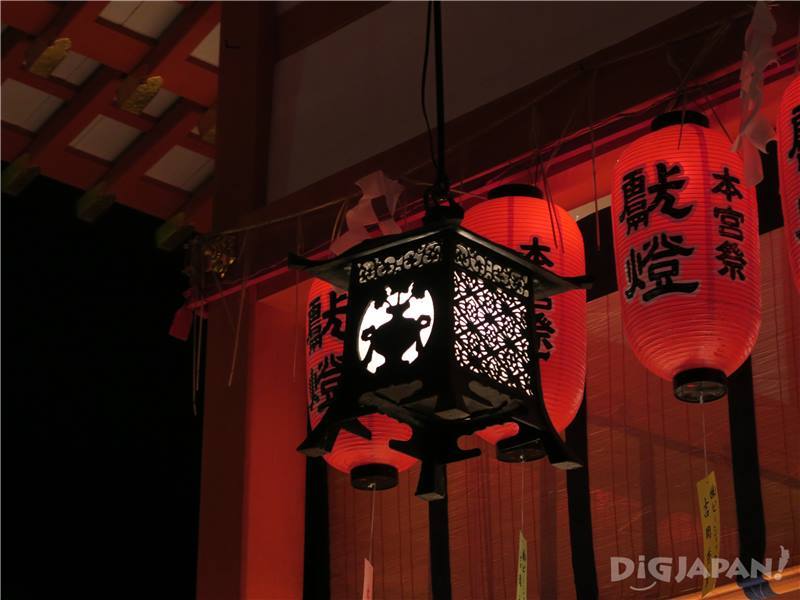
Date: July 20, 2024 from 6:00pm (Every year in late July.)
Place: Kyoto Fushimi Inari Shrine (MAP)
Access: 1 min. walk from Inari Station on the JR Nara Line / 5 min. walk from Fushimi-Inari Station on the Keihan Electric Railway Main Line
Website: http://inari.jp/en/
The Yomiya and Honmiya festivals are held on a different day each year at the end of July. Definitely participate in this rare event on your trip to Kyoto if you get the chance!
Date: every year in July
Place: Higashiyama district and Yasaka Shrine, Kyoto-shi, Kyoto Prefecture
Date: August 16, 8:00pm - 8:50pm (times may vary due to weather conditions)
Place: 5 spots in Sakyo-ku, Kyoto-shi, Kyoto Prefecture
About the Author
Lee Carrotylee graduated in literature at Doshisha University and lives in Kyoto. She feels like she could live in Japan no matter how many years and never get bored of it, because of the constant change of the seasons. She's committed to delivering deep Kansai travel information to people who love Japan.
Pictures by DiGJAPAN! editorial team
*The above article is based on information from July 2018.
*Some information has been updated on July 2023.
*Pictures are from past events.
*Event schedules and other information in this article are subject to change. Please check the official websites before your visit.
The Yoimiya-sai is held on the day prior to the motomiya-sai, the main festival where people express their gratitude to the Inari god for its blessings. The highlight of the day is the lantern ritual.

This ritual is held only once a year. The night of the festival many lanterns are lit and the shrine stands out in the red light among the darkness, giving out an aura of elegance.
How to Get There
There are two ways that I recommend to get to the Fushimi Inari Taisha. One is to take the JR line from Kyoto Station and get off at Inari Station. The other one is taking the Keihan Electric Railway to Fushimi-Inari Station. I used the latter on my visit.
Fushimi-Inari Station is different from other stations on the Keihan line. The platforms are decorated with red pillars inspired by the torii gates of the shrine and the shrine's protectors, the kitsune foxes.

Arriving at the Fushimi Inari Taisha!
The shrine is just a 5 minute walk from the station. Upon entering there's an information board with the month's event schedule. In summer the sun sets later so the lantern ritual starts at 7pm.
As soon as the sun goes down the lanterns are lit and the road leading to the shrine is lined by countless shining lanterns.

Going past the big torii gate at the entrance makes you feel like you entered a parallel world.

The Lantern Ritual
Among the visitors are many people wearing yukata, a lighter summer version of the kimono. Some people are also wearing kitsune fox masks. The atmosphere is very Japanese.
The shrine shows us a different look at night.

Fushimi Inari Taisha is famous for the senbon torii (千本鳥居), a row of countless red torii gates. Normally if you visit at night you can't see anything in the dark, but during the Yoimiya-sai the gates are lit by red lanterns. It's a very rare and beautiful view.


The fox is said to be the animal protector of inari shrines, so you'll find many fox-themed items here. Aside from the masks described earlier, there are also fox-shaped ema plaques. These wooden plaques are used to write one's prayers and wishes. You can write your own prayers too. The Inari god is the god of abundant crops and thriving business.


Don't Forget a Stroll Through the Yatai
One of the highlights of Japanese festivals is the yatai, colorful stalls selling mainly food and drinks. Here you'll be able to sample a lot of Japanese festival food.
There are also stalls where you can play small games like the kingyo sukui (goldfish catching) and ring throwing. The food stalls sell grilled squid, yakisoba and all kinds of sweet and savory street food. Make sure you come on an empty stomach!

One food in particular that I recommend trying here is inari sushi.

It consists of sushi rice wrapped inside deep-fried tofu pockets called 'inari'. It is said that this is the foxes' favorite food, so there are a lot of shops by the shrine where you can eat inari sushi. Definitely give it a try!

Fushimi Inari Taisha's torii gates are one of the most prominent tourist attractions of Kyoto. The place is crowded with visitors all year round.
However, being able to see the torii at night is a very rare occasion. If you happen to be around for this festival don't miss the chance to see a part of this famous shrine that very few people get to see.

Information
Fushimi Inari Taisha Yoimiya-sai | 伏見稲荷大社 宵宮祭Date: July 20, 2024 from 6:00pm (Every year in late July.)
Place: Kyoto Fushimi Inari Shrine (MAP)
Access: 1 min. walk from Inari Station on the JR Nara Line / 5 min. walk from Fushimi-Inari Station on the Keihan Electric Railway Main Line
Website: http://inari.jp/en/
The Yomiya and Honmiya festivals are held on a different day each year at the end of July. Definitely participate in this rare event on your trip to Kyoto if you get the chance!
There's More! Kyoto's Recommended Summer Festivals
■ Gion Matsuri
The Gion Matsuri is one of the three major festivals of Kyoto and the most popular. Visitors gather from all Japan and all over the world to see this event. Although it lasts for about a month, the best period to go is between July 14th and 17th. From the 14th to the 16th the yoi matsuri (small festival held before a festival) is held. The area around Shijo street becomes a pedestrian paradise with food stalls where you can get delicious treats while admiring the parade from up close. There are even some floats that allow visitors to get on so don't miss this chance of experiencing the long tradition of Gion Matsuri from the inside!Information
Gion Matsuri | 祇園祭Date: every year in July
Place: Higashiyama district and Yasaka Shrine, Kyoto-shi, Kyoto Prefecture
■ Kyoto Gozan no Okuribi
Literally meaning "the five mountains' send-off fire", this festival is held every year on August 16th. After 8pm five bonfires are lit atop the mountains surrounding Kyoto. The fires are in the shape of three Japanese characters, a torii gate and a boat. Its custom originated from Buddhism to send off the spirits of deceased family members that have been visiting this world back to the spirit world. It's also the ceremony that symbolizes the end of the summer in Kyoto as it is the last large-scale summer event in the city.Information
Kyoto Gozan no Okuribi | 京都五山送り火Date: August 16, 8:00pm - 8:50pm (times may vary due to weather conditions)
Place: 5 spots in Sakyo-ku, Kyoto-shi, Kyoto Prefecture
About the Author
Lee Carrotylee graduated in literature at Doshisha University and lives in Kyoto. She feels like she could live in Japan no matter how many years and never get bored of it, because of the constant change of the seasons. She's committed to delivering deep Kansai travel information to people who love Japan.
Pictures by DiGJAPAN! editorial team
*The above article is based on information from July 2018.
*Some information has been updated on July 2023.
*Pictures are from past events.
*Event schedules and other information in this article are subject to change. Please check the official websites before your visit.

Liked this story? Like DiGJAPAN!
on Facebook for daily updates!
THIS ARTICLE IS BASED ON INFORMATION FROM 07 16,2024 Author:DiGJAPAN! Editorial Team






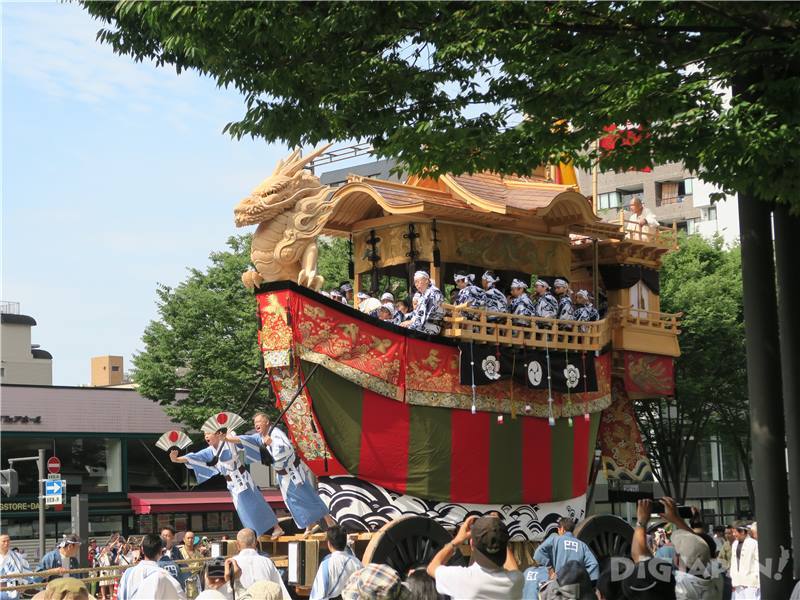
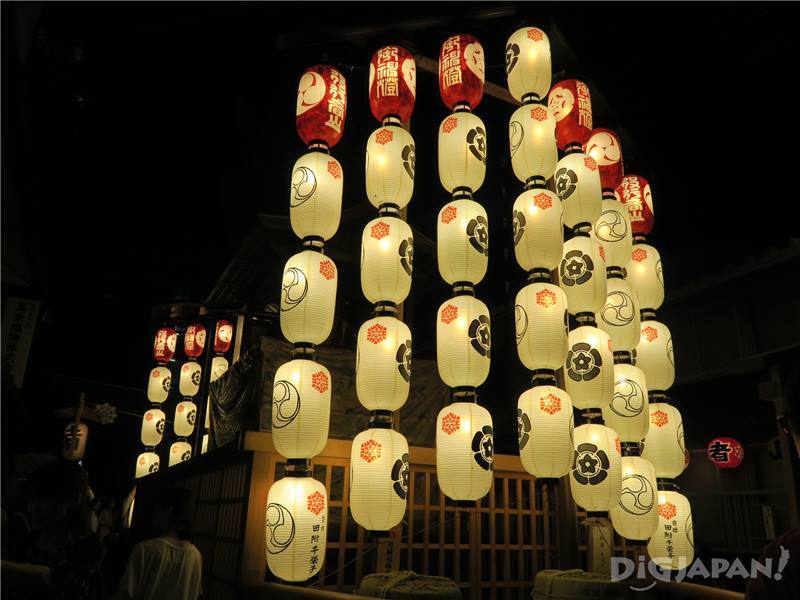
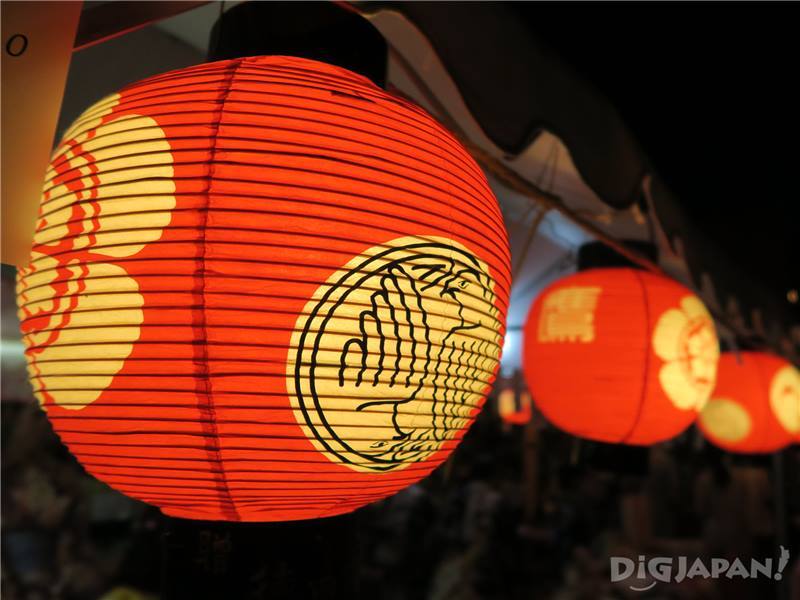
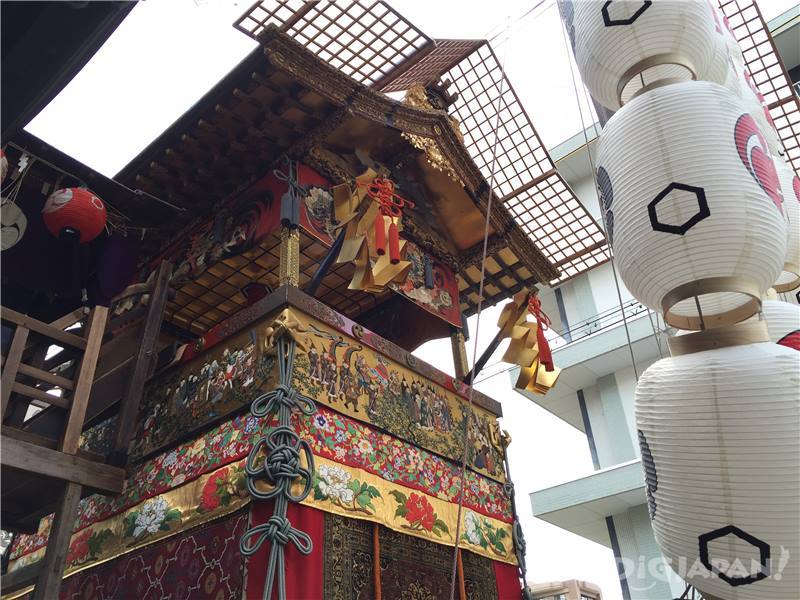
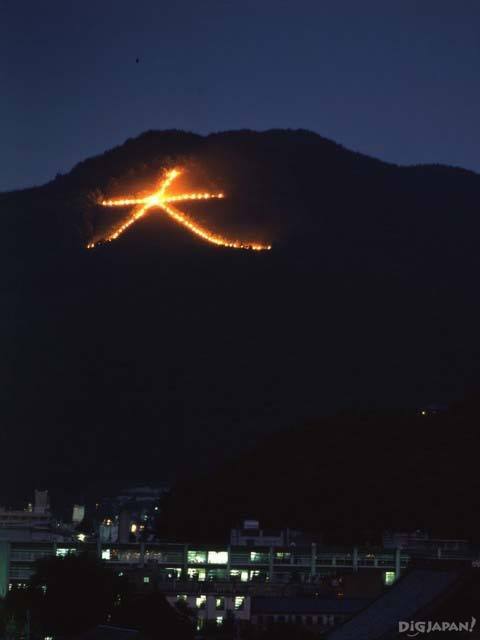
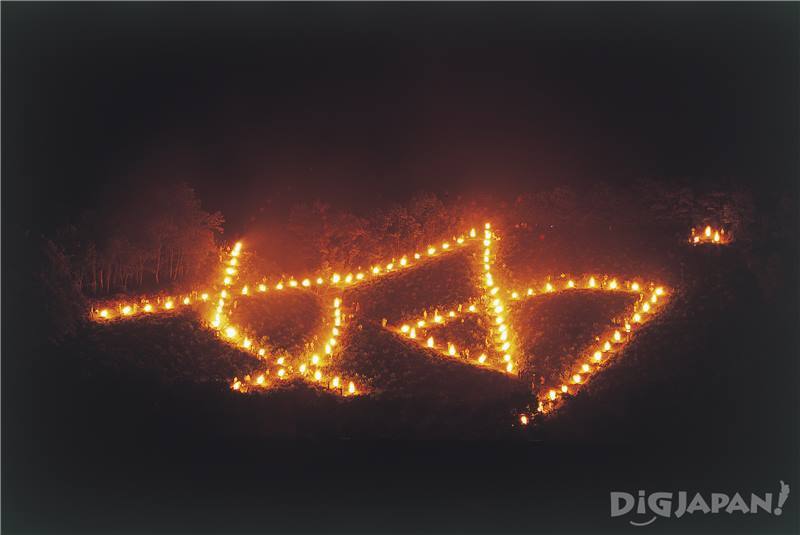
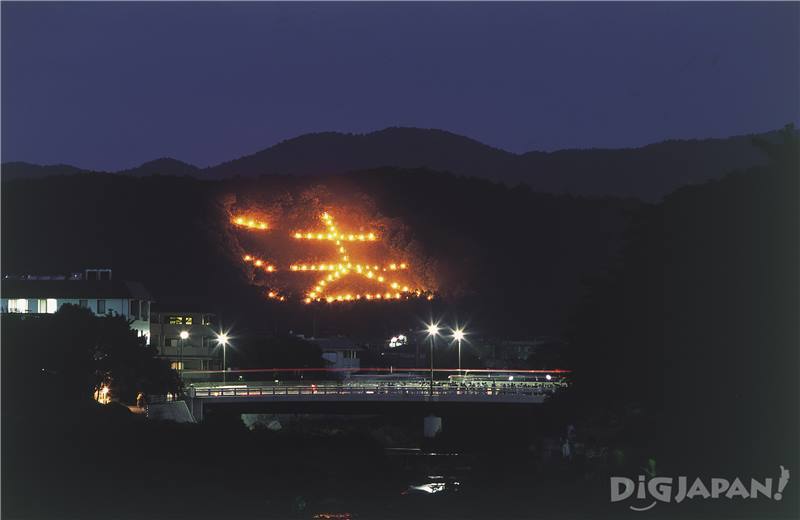
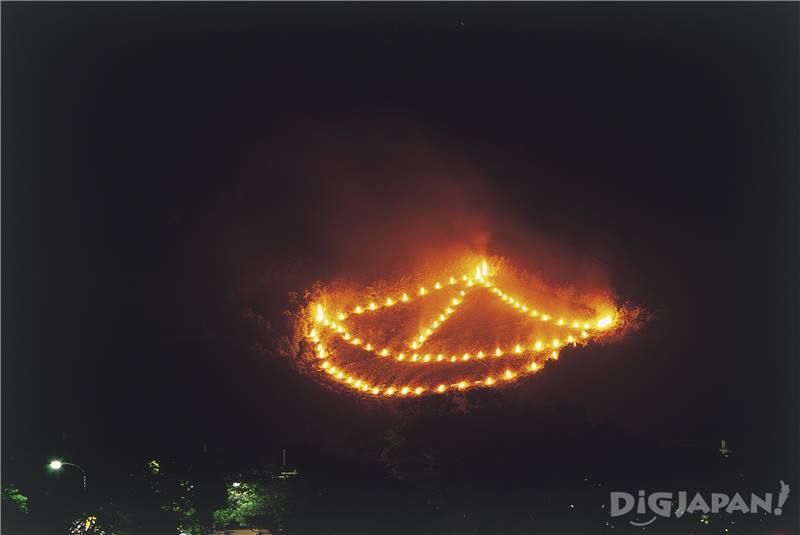
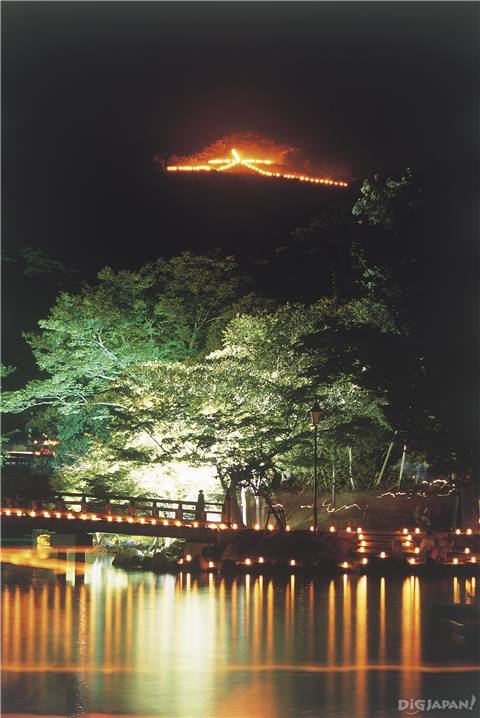







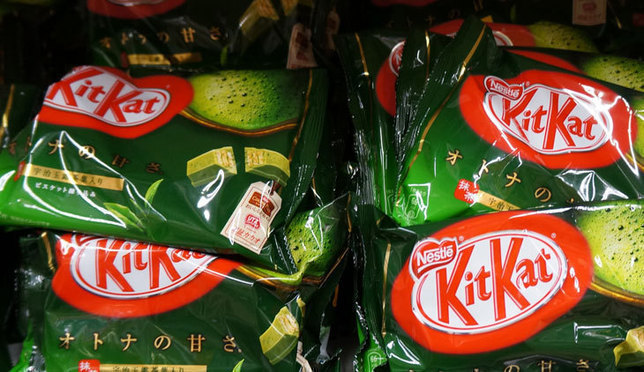
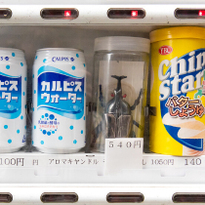
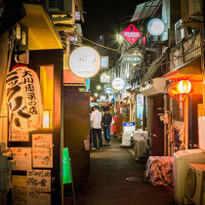
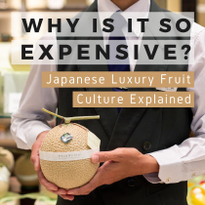
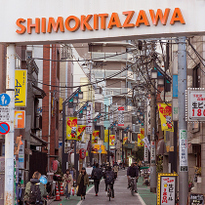




NEW COMMENT | 0 COMMENTS
Open a DiGJAPAN!
account to comment.
Open a DiGJAPAN! Account